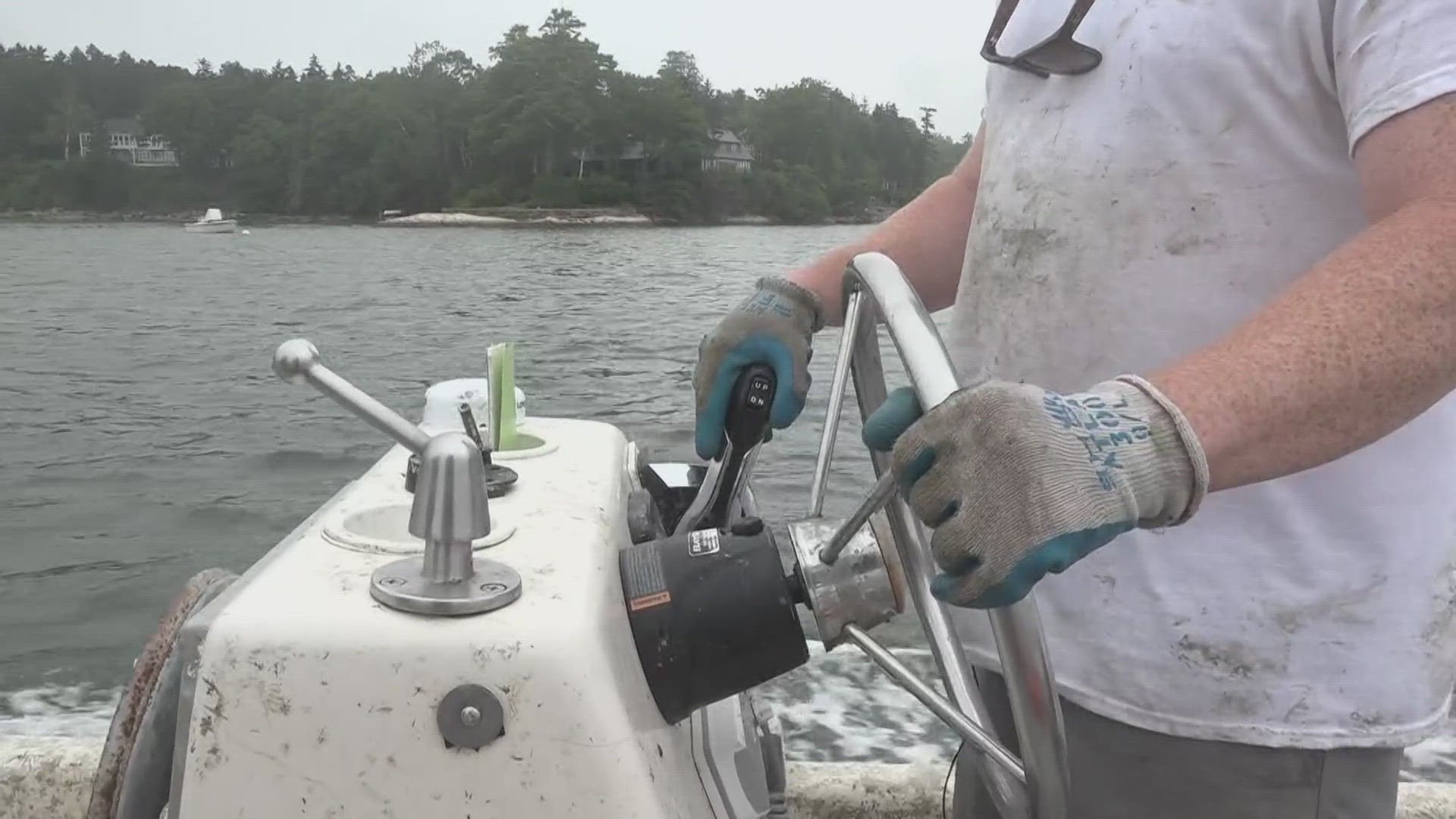BRUNSWICK, Maine — The aquaculture industry in Maine employs more than 700 people at nearly 200 farms along the Maine coast, bringing in about $100 million in sales.
Several organizations, including the Maine Aquaculture Association and the Gulf of Maine Research Institute (GMRI), created a workforce training system to streamline people into the field based on an analysis predicting the industry's future needs.
Two programs—the 10-12 week Aquaculture Pioneers program and the year-long Maine Shellfish and Seaweed Aquaculture Apprenticeship program— were launched to give people hands-on experience and mentorship at an aquaculture farm.
"I've done pretty much every job you can do on the farm, so it's nice to see the full gamut of options," a Mere Point Oyster Company apprentice, Kat Lipp, said.
Currently, 19 pre-apprentices work at 18 farms along the coast as part of the Aquaculture Pioneers program. The pre-apprenticeship program teaches the fundamentals of working on the water.
"There's always a new tidbit to learn and tips here and there that help me out," Colin Quinn, a Mere Point Oyster Company apprentice, said.
The Maine Shellfish and Seaweed Aquaculture Apprenticeship program is a 2,000-hour program at five farms in southern and midcoast Maine. It's a combination of on-the-job learning with 144 hours of classroom work at Southern Maine Community College.
"Now we're at the point where these farms are starting to grow a little bit, get sustainable income, and they're at the point they're selling their product and they're looking to hire one or two full-time employees," Carissa Maurin, aquaculture program manager at the Gulf of Maine Research Institute, said. "I think that's a great sign for this industry, that we're sustainably growing as the needs are growing."
The industry's been steadily growing— its total revenue nearly tripled in seven years. Its total economic impact grew from $50 million in 2007 to $137 million in 2014, according to the latest Maine Aquaculture Economic Impact Report from 2017.
The programs were formed through a collaboration between FocusMaine, Educate Maine, the Gulf of Maine Research Institute, and the Maine Aquaculture Association.

